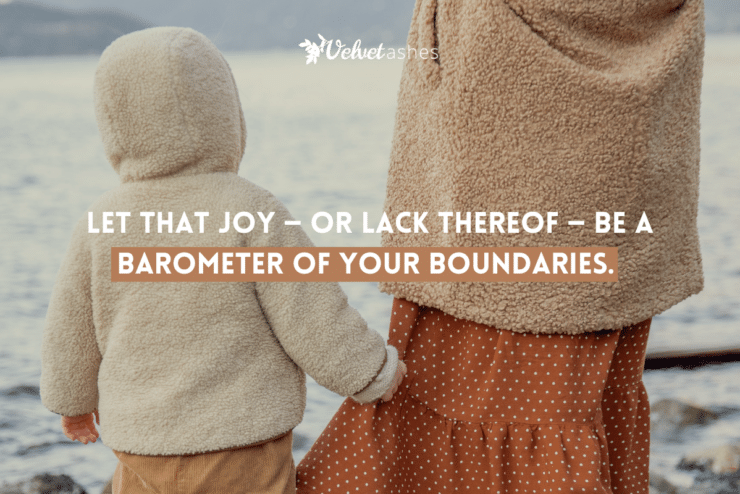I regretted the words as soon as I spoke them.
The look on her face conveyed the pain I had unintentionally inflicted. In trying to offer encouragement, I had instead communicated she should be ashamed for feeling the way she did. I had wanted to offer hope by sharing a new perspective on the situation, but I had bypassed the need to acknowledge and sit for a while with her in her grief and feelings of loss. I had confused my attempts to comfort as a means of encouragement, and in so doing, provided neither comfort nor encouragement.
It was around this time that I was working my way through Pollock and Van Reken’s book, Third Culture Kids. That night, I read these words:
Merriam-Webster’s Collegiate Dictionary defines comfort as “consolation in time of trouble or worry.” Comfort doesn’t change the situation itself, nor can it take away the pain, but it relays the message that someone cares and understands. Comfort validates grief and gives permission for the grieving process to take place. For example, when a person walks up to a widow standing by her husband’s casket and puts an arm around her shoulder, that gesture, with or without words, is comforting. It can’t bring the husband back to life or stop the tears or the pain, but it lets the widow know her grief is accepted and understood. She’s not alone in her sorrow.
Unfortunately, in their very efforts to help another person “feel better,” people often confuse comfort with encouragement and end up giving neither. Encouragement is a person’s attempt to change the griever’s perspective. It may be a reminder to look at the bright side of a situation instead of the loss or to think about a past success and presume this present situation will turn out just as successfully.
Obviously there’s a time for both comfort and encouragement, but what happens if the two are confused? When the grieving widow is told that it’s a good thing her husband at least had a substantial life insurance policy, how does she feel? Neither comforted nor encouraged! When encouragement is given before comfort, the subtle or not so subtle message is “Buck up, you shouldn’t feel so low.” It becomes a shame message rather than encouragement.
Third Culture Kids by David C. Pollock and Ruth E. Van Reken, pg. 174-5
Wow! Those words couldn’t have been written more clearly to speak to me in this situation. It was just what I had done to my friend … confused encouragement and comfort.
My friend and I met again. I shared this quote with her and apologized. She graciously forgave me and gave me a second chance. I am thankful for that second chance. It set the stage for a new depth to our friendship that I have highly valued in the years that have followed.

To comfort another person, to say, “I understand,” is to admit there’s a reason for grieving. Pollock & Van Reken pg. 176
Just a few weeks ago I had the privilege of being on the receiving end of comfort offered, this time as true encouragement. I was private messaging with a friend on Facebook, our primary means of communication. We only had a few minutes to chat but I had wanted to share with her a difficult and challenging situation I was experiencing. As I shared my fears with her, her response was so kind and affirming. She acknowledged each and every one of my fears, some before I even articulated them to her.
I was repeatedly typing and sending the words, “You understand!” Our conversation ended all too soon, but how strengthened I felt from her words. She did not leave the conversation without giving me a word of hope and encouragement, but did so only after repeatedly affirming the reality of the situation – that yes, God would work it out, but that yes too, it was going to be tough.
What a comfort her words had been. I felt deeply understood after chatting with her.
Like apples of gold in settings of silver is a word spoken in right circumstances. Proverb 25:11 (NASB)
I long for my words to be as apples of gold; to be a friend who speaks words of comfort; to be the kind of friend who will ‘sit with’ in a friend’s time of distress. I know that is what I need and want from a friend.
I am thankful that Jesus is described as a man who was acquainted with grief (Isaiah 53:3). I am thankful for the words that remind us that He shared in the sorrow of losing a friend (Jesus wept – John 11:35).
He is a friend who understands, and in understanding brings comfort.
What’s been your experience with giving or receiving comfort instead of encouragement.
Photo Credit: Gordon McKinlay via Compfight cc





Thanks for sharing this, Beth. This is one of my favorite things–animated short video that explains the difference between empathy and sympathy. It’s Brene Brown’s voice. I love that she says empathy never starts with “at least.” A great reminder! https://www.youtube.com/watch?v=1Evwgu369Jw
I thought of that short too, Kay, when I read this!
Great video Kay! Thanks for sharing that!
Thanks Kay for the clip … I love Brene Brown so much. And have a post coming out tomorrow on the three things I’ve learned about giving comfort in the last few years and see truths she (and Beth) have mentioned here. I’m taking your bookmarks with me tomorrow to the FROZEN north 🙂
I like the differentiation between comfort and encouragement, Beth. It was only recently that I realized the difference. I tended to lump all the “nice things to say” into encouragement, whether that was saying something kind at an appropriate time, or saying nothing at the appropriate time. I guess I was considering comfort as a type of encouragement. But I like differentiating the two, and you explain it well. Now I will always think: comfort first!
Pollock and Van Reken explain it well :). I’m still learning, and like you trying to always think “comfort first”.
Wonderful post, so spot on! I am becoming more aware of the differences between acknowledging grief and expressing comfort, versus trying to be a hope-giver through words of encouragement, both of which I agree should have important places in our relationships. I immediately thought of Brené Brown’s TED talk & the video mentioned in previous comments, but since they’ve already been mentioned, perhaps this Ring Theory called “The Kvetching Order” could also be useful. I’ve looked for the original reference but keep coming back to the article in the LA Times here: http://www.latimes.com/opinion/op-ed/la-oe-0407-silk-ring-theory-20130407-story.html “How not to say the wrong thing”
Also Beth, I just wanted to say well-done on going back to your friend and apologizing. It is such a challenge to say the right thing, we never know how the person will take it, but from the receiving end, let me say I would rather someone be by my side in difficult times than keeps away for fear of putting their foot in it. The arm around the shoulder image says it all for me.
I remember reading that last year. Challenging article! It’s easy to remember who’s in the center of the circle for certain crises, but for others, especially long term or chronic issues, it’s easy to forget. I do sometimes wonder if in the Body of Christ, there will be exceptions to this, as we shoulder grief together, especially if those griefs are collective or if relationships are extra close. But as I said before, extremely insightful and majorly challenging article, thanks for sharing it here and reminding me!
Thanks for sharing that article – great read! And thanks for your encouraging words. Yes, hand around the shoulder speaks volumes.
Beth – thanks for your honesty! Great quoting and so so true. Comfort before encouragement – need to mark that on my forehead, around my finger….MUST remember that.
May we all endeavor to remember!
Life hurts, and its okay to cry about it. Somehow this is an unspoken motto for my life (and actually, it was just in this moment that I realized this!). As the Lord draws me closer to Himself, He calls me to pour it all out. So, when I come to Him in prayer, some days all I have to offer is weeping. But oh how He meets me there!
So, why am I so unwilling to just sit with someone in their pain? Why am I so eager to try to fix it? Is it because I am so fearful of despair, and my real need is to protect myself and that surpasses my ability to join you in your pain? I don’t know the answer to my default “fix-it” mode. But I do know how yucky it feels when someone else is trying to fix me and not really listening. And I do know how upbuilding it is when someone will just listen and let me cry.
Thanks for sharing Cecily. I am so thankful too for how our Savior meets us in our offering of tears.